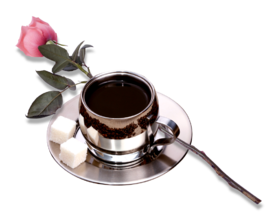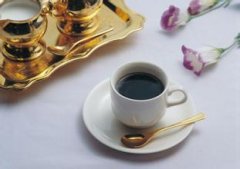Rich and perfect taste of Kenya's Jinchu Valley Fine Coffee Bean Planting Location Climate Elevation

On an international scale, the growth in Kenyan coffee production has been remarkable, with exports rising from 800,000 bags in 1969- 1970 to 2 million bags in 1985-1986. Production is now stable at 1.6 million bags, averaging about 650 kg per hectare. The average price of coffee in Kenya has been rising since before the recent spike. 1993--1994 Prices are 50% higher in 2010 than they were 12 months ago. Price increases are mainly the result of increased demand.
Some buyers, especially Japanese ones, have complained about Kenya's coffee system. Some traders say the quality of coffee in the country has declined, pointing out that buying directly from farmers may be one way to improve quality. But Kenya's detailed rules and procedures are a model for all coffee-producing countries
Last year, international coffee prices continued to fall as global supply increased, with Kenyan coffee prices at one point falling to their lowest level since 2007, severely affecting the livelihoods of millions of coffee farmers. Coffee prices have rebounded this year as dry weather in Brazil has led to an expected decline in coffee production.
Large farms usually have separate treatment facilities. A large number of small farmers usually pick ripe coffee berries by hand. Coffee picking is labour-intensive, requiring the whole family to work and even workers to be hired during harvest season. Fresh coffee needs to be transported in time to a cooperative-owned coffee processing plant for pulping, which may be carried by ox cart, pickup truck or truck. After dehulling, the Parchment coffee is stored briefly in the cooperative's processing plant and then sent to privately owned plants for dehulling. Kenya's coffee production is concentrated in the plateau areas represented by Mt.Kenya. Tropical climate, acidic red volcanic soil for coffee provides a natural suitable growth environment. The most famous of the seven growing areas, including Nyeri, Sika, Chiambu, Gilinya, Ruiru, Muranga, and the west side of Mount Kenya, the main growing areas such as Nyeri and Ruiru in the middle were originally brought to Kenya for cultivation. Bourbon was first cultivated in the 1950s by Scott Laboratory, an agricultural research institution at that time.(Scott Laboratory) Through unremitting efforts, two excellent hybrids SL-28 and SL-34 have been selected, subverting the long-standing prejudice that artificial breeding varieties are not as excellent as natural varieties.
Kenya AA coffee beans Kenya's northern neighbor Arabica coffee tree origin Ethiopia, but as late as the early twentieth century, began to engage in coffee cultivation, the nineteenth century missionaries introduced Arabica trees from Yemen, but did not plant a large number, until 1893, and the introduction of Brazil's ancient "bourbon" coffee seeds, coffee cultivation on a large scale. That is to say, the current Kenyan coffee has Brazilian ancestry, and due to differences in water, climate and processing methods, Kenyan bean flavor and Brazilian bean flavor are aromatic, rich and fruity, and taste rich and perfect. Kenya coffee has a wonderful fruity flavor, with a blackberry and grapefruit flavor, and is a favorite of many coffee lovers. This coffee has an excellent medium purity, crisp and refreshing taste. Fresh flavor and best for iced coffee in summer. When tasting this coffee, if it is accompanied by fruit with acidity such as grapefruit, it will definitely give me the best coffee experience. "Less coffee, more fruit tea" is the common feeling many people have about this light roasted Kenyan coffee.
Aromatic, rich, fruity, rich and perfect on the palate. Kenya coffee has a wonderful fruity flavor, with a blackberry and grapefruit flavor, and is a favorite of many coffee lovers. This coffee has an excellent medium purity, crisp and refreshing taste. Fresh flavor and best for iced coffee in summer. When tasting this coffee, if it is accompanied by fruit with acidity such as grapefruit, it will definitely give me the best coffee experience. "Less coffee, more fruit tea" is the common feeling many people have about this light roasted Kenyan coffee.
SL-28 and SL-34 help Kenya coffee to form its own unique flavor characteristics and establish a perfect reputation in the coffee industry. Although SL28 did not yield as much as expected, the copper-leaf color and broad bean-like beans had great sweetness, balance and complexity, as well as notable citrus and dark plum characters. SL34 and SL28 taste similar, except for complex acid, and a good sweet finish, the taste is heavier, richer and cleaner than SL28. SL34 has French missionary, bourbon, and more Tibica pedigree. The beans are similar in appearance to SL28, but are better able to adapt to sudden heavy rain. It is these two important varieties that lead us to the unique Kenyan style: intense fruit acids, rich taste and beautiful balance
If you know how to brew coffee without knowing how to taste it, the original taste may become tasteless. Some taste coffee is to use the tongue to feel the taste, and some enjoy the kind of aromatic alcohol in the mouth, in addition to this, but also depends on the body when drinking coffee, the surrounding atmosphere and so on. In short, coffee tasting is a very delicate matter.
When drinking coffee in a poor coffee shop, sometimes you will drink nearly half cold coffee. No matter how good the quality of coffee beans is, and how good the brewing skills are, you will lose your appetite for coffee. "Drink hot" is a necessary condition for tasting delicious coffee, even if it is hot coffee in the summer. When coffee is cold, the flavor will be reduced, so when brewing coffee, in order not to reduce the taste of coffee, the coffee cup should be soaked in boiling water in advance. The appropriate temperature of coffee is 83 degrees Celsius at the moment of brewing, 80 degrees when poured into the cup, and 61-62 degrees when it reaches the mouth. The most ideal delicious coffee, in addition to paying attention to the appropriate temperature, should also have the appropriate amount. Drinking coffee is not like drinking wine or juice. A full cup of coffee loses interest after watching it. Ordinary only to seven or eight full for the right amount, moderate amount of coffee will not only stimulate the taste, after drinking there will be no "greasy" feeling, but aftertaste endless. At the same time, the right amount of coffee can moderately promote the body to recover fatigue, and the mind is refreshed.
Coffee tastes different, so you can't drink three or four cups in a row like tea or coke, and the amount of coffee in a formal cup is just right. Ordinary drink coffee to 80-100cc for the right amount, sometimes if you want to drink three or four cups in a row, then it is necessary to dilute the concentration of coffee, or add a lot of milk, but still take into account the physiological needs of the degree, to adjust the concentration of coffee, that is, do not cause greasy or disgusting feeling, and in the sugar blending may also wish to change more, make coffee more delicious
As usual, we choose the familiar medium and light roasting, but in order to retain the original rich fruit flavor in the raw beans, we will increase the temperature of the beans to 210℃, keep the temperature return point at 125℃, observe the temperature return point after entering the pot, and then steam with low fire. Observe that the coffee beans are evenly whitened at 4 minutes and 30 seconds, and then accelerate the fire to complete the dehydration for about 5 minutes and 30 seconds. When 8 minutes reach 175℃, reduce the fire again to make the coffee beans undergo incomplete dehydration condensation to produce chlorogenic acid lactone. Add a sense of total balance, the whole roasting time is 10 minutes and 30 seconds, the acid is very soft and delicate Kenya coffee beans Kenya government takes the coffee industry extremely seriously, where it is illegal to cut down or destroy coffee trees. Kenya's coffee buyers are world-class buyers of premium coffee, and no country grows, produces and sells coffee as consistently as Kenya. All coffee beans are first acquired by the Coffee Board of Kenya (CBK), where they are appraised, graded and then sold at weekly auctions, where they are no longer graded. The Kenya Coffee Board acts only as an agent, collecting coffee samples and distributing them to buyers so that they can determine price and quality. Nairobi auctions are held for private exporters and the Kenya Coffee Board pays growers below-market prices. The best coffee grade is bean berry coffee (PB), followed by AA++, AA+, AA, AB, etc., in that order. Fine coffee is shiny, delicious and slightly aromatic. The auction is also organized to meet the needs of the distributor. These auctions usually sell small quantities (3-6 tons each), with samples bearing the grower's logo for buyers to appreciate. After auction, exporters pack according to different flavors, different qualities and quantities required by blenders. This provides a great deal of flexibility for the deployer. Quality-conscious germans and nordics are long-term buyers of kenyan coffee.
Important Notice :
前街咖啡 FrontStreet Coffee has moved to new addredd:
FrontStreet Coffee Address: 315,Donghua East Road,GuangZhou
Tel:020 38364473
- Prev

Brief introduction of planting Market Price of Fine Coffee Bean varieties in Jinchu Valley of Kenya with Sweet Cherry
Large farms usually have independent treatment facilities. A large number of small farmers usually pick ripe coffee fruits by hand. Coffee picking is a labor-intensive job that requires the whole family to deploy and even hire workers during the harvest season. The fresh fruits of the picked coffee need to be promptly transported to the cooperative-owned coffee processing plant for pulping, and the means of transport may be ox carts.
- Next

A brief introduction to the processing method of grinding degree and roasting degree of Kenya Jinchu Valley fine coffee beans
The usual choice of light roasting, but in order to retain the original very rich fruit flavor in the raw beans, we will enter the bean temperature to 210℃, temperature point to maintain at 125℃, into the pot after observing the temperature point after the small fire steam roasting, in 4 minutes and 30 seconds to observe the coffee beans white evenly, and then urge the fire to 5 minutes and 30 seconds to complete dehydration, in 8 minutes to reach 175℃ when the heat is reduced, so that coffee
Related
- Detailed explanation of Jadeite planting Land in Panamanian Jadeite Manor introduction to the grading system of Jadeite competitive bidding, Red bid, Green bid and Rose Summer
- Story of Coffee planting in Brenka region of Costa Rica Stonehenge Manor anaerobic heavy honey treatment of flavor mouth
- What's on the barrel of Blue Mountain Coffee beans?
- Can American coffee also pull flowers? How to use hot American style to pull out a good-looking pattern?
- Can you make a cold extract with coffee beans? What is the right proportion for cold-extracted coffee formula?
- Indonesian PWN Gold Mandrine Coffee Origin Features Flavor How to Chong? Mandolin coffee is American.
- A brief introduction to the flavor characteristics of Brazilian yellow bourbon coffee beans
- What is the effect of different water quality on the flavor of cold-extracted coffee? What kind of water is best for brewing coffee?
- Why do you think of Rose Summer whenever you mention Panamanian coffee?
- Introduction to the characteristics of authentic blue mountain coffee bean producing areas? What is the CIB Coffee Authority in Jamaica?

